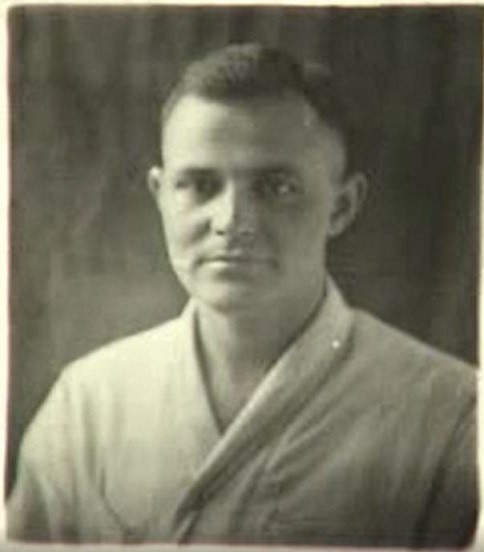Grigorii Itskovich was born in 1920 in the village of Novo-Mykolayivka, near the resort town of Skadovsk in the Kherson Region, southern Ukraine. He was the ninth, youngest, child of a rural Jewish family. His father David came from a family of Jewish agricultural colonists, but in the 1920s-30s he worked as a rural postman; he died in 1936. Grigorii's mother Maria was the true breadwinner of the family, working as a cook at various village feasts and church festivals. The family was religious, but Ukrainian-speaking. Grigorii recalls1 that only his older siblings spoke some Yiddish, while he had no knowledge of the language. In 1934, Grigorii finished a seven-year school and began to work as a bookkeeper at the local MTS (machine tractor station).
In April 1941, Grigorii was drafted into the Red Army. He underwent basic military training in Kiev. Several days before the German invasion of the Soviet Union, his unit was transferred to Tarnopol (present-day Ternopil), in the recently annexed southeastern Poland (Western Ukraine). It was there that Grigorii Itskovich received his "baptism by fire" at the outbreak of the Soviet-German War. His unit retreated to the Kirovohrad (present-day Kropyvnytskyi) Region, and in August 1941 Itskovich was taken prisoner by the Germans. At the POW camp in Kirovohrad, Grigorii passed himself off as Grigorii Iatskevich, and this Polish-sounding last name, along with his non-Jewish appearance and knowledge of Ukrainian, helped him survive the first days of captivity. He realized that he had to escape before the Germans could electrify the barbed-wire fence surrounding the camp. Grigorii and two of his fellow (non-Jewish) POWs managed to do that. He arrived in Kherson, where his sister lived, and she advised him to leave the town as soon as possible, since the Germans were resettling the local Jews in a ghetto. Grigorii left for a village on the Black Sea coast, where he was able to register himself as a former Ukrainian POW, and the occupiers permitted him to live in this rural area. In late 1941, Grigorii witnessed the Nazi massacre of a Jewish agricultural colony in the vicinity of Skadovsk.
In February-March 1944, as the Red Army was approaching Skadovsk, Grigorii and three other POWs, dreading the prospect of deportation to Germany for forced labor, hid in a bunker. During the hasty German retreat from the area, they disarmed several German soldiers and joined a Soviet military unit, which received them with joy. Grigorii took part in the pursuit of the retreating enemy. When the fighting was over, the commander of the unit ordered them to go to the local recruitment office, to officially reenlist in the Red Army. At the recruitment office, Itskovich underwent a brief screening, and was then attached to the 50th Rifle Division, which was deployed on the 1st Belorussian Front. He recalls 2 that his most ardent desire at the time was to avenge the deaths of his mother and three sisters. Itskovich served with his division as a communications man, first in Belorussia, and later in Poland. In Belorussia, he was wounded, but returned to frontline duty, now with the 413th Division. As his unit was advancing into East Prussia, Grigorii was seriously wounded and evacuated to a rear hospital, where he narrowly avoided having his leg amputated. In January 1946, Itskovich was discharged from the military. He settled in Kherson, where he worked as a bookkeeper at a chemical plant.
In the course of the war, Grigorii Itskovich was awarded the medal "For Battle Merit" and the Order of the Red Star. Three of his brothers and his elder sister Roza were drafted into the Red Army, and they survived the war.







